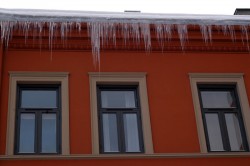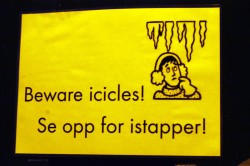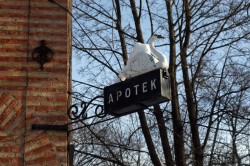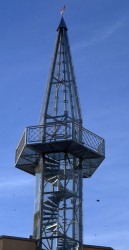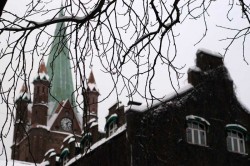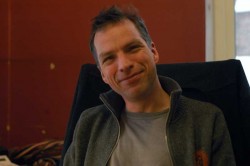Posted by Mary under ICBL
No Comments
Sister Denise in Phnom Penh today informed the campaign that Cambodian mine survivor and ban campaigner Suon Chreuk died this weekend following recurring problems from his landmine injuries that were complicated by pulmonary and kidney issues.
 I met Chruek in New Zealand in 1995 when Phil Twyford of Oxfam brought him out to New Zealand to help convince the government that it should permanently renounce antipersonnel mines and work to secure an international ban on the weapon. He spoke very effectively to media and the public. National television ran a story that focused more on him being carried up the stairs on to the press conference stage thereby inadvertently demonstrating how inaccessibility the parliament buildings were!
I met Chruek in New Zealand in 1995 when Phil Twyford of Oxfam brought him out to New Zealand to help convince the government that it should permanently renounce antipersonnel mines and work to secure an international ban on the weapon. He spoke very effectively to media and the public. National television ran a story that focused more on him being carried up the stairs on to the press conference stage thereby inadvertently demonstrating how inaccessibility the parliament buildings were!
After losing both legs in the mine incident, Chreuk joined the Jesuit Service’s Centre of the Dove in 1993 where he manufactured their unique wheelchairs. He was one of four war veterans from opposing sides of the conflict who together issued a famous petition in 1994 that garnered more than a million signatures calling for a ban on landmines. We were amazed they managed to did this in Cambodia, a country where less than 20 years earlier people were executed for being able to read and write!
 I met Chreuk again in May 1996 when he came to Geneva to lobby diplomats to support the mine ban. John Rodsted took some great photos of him working together passing out newsletters, throwing shoes in a demonstration, speaking to press together with Reth and Man Sokherm, and talking to and inspiring all of us, especially the governments.
I met Chreuk again in May 1996 when he came to Geneva to lobby diplomats to support the mine ban. John Rodsted took some great photos of him working together passing out newsletters, throwing shoes in a demonstration, speaking to press together with Reth and Man Sokherm, and talking to and inspiring all of us, especially the governments.
Chreuk was only 43 years old when he died and he leaves behind his wife Joaqui, two children and some nieces and nephews that he was bringing up together with his wife. One of them was sold into prostitution and Chreuk went to buy the child back! Sister Denise described Cheruk as a man of “great courage and integrity.” We’re going to miss him. To help support JS Cambodia, go to their website: www.jrscambodia.org

